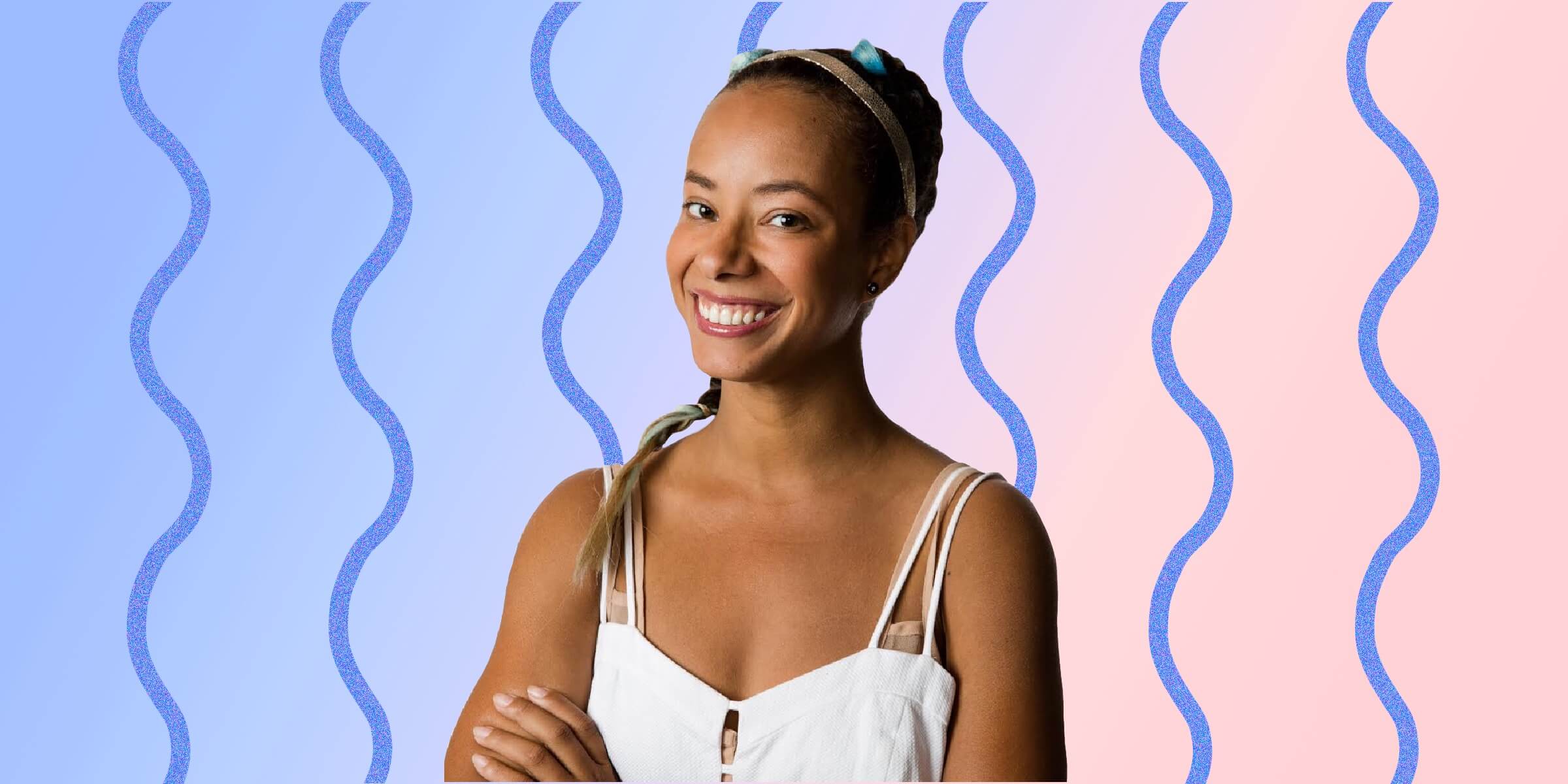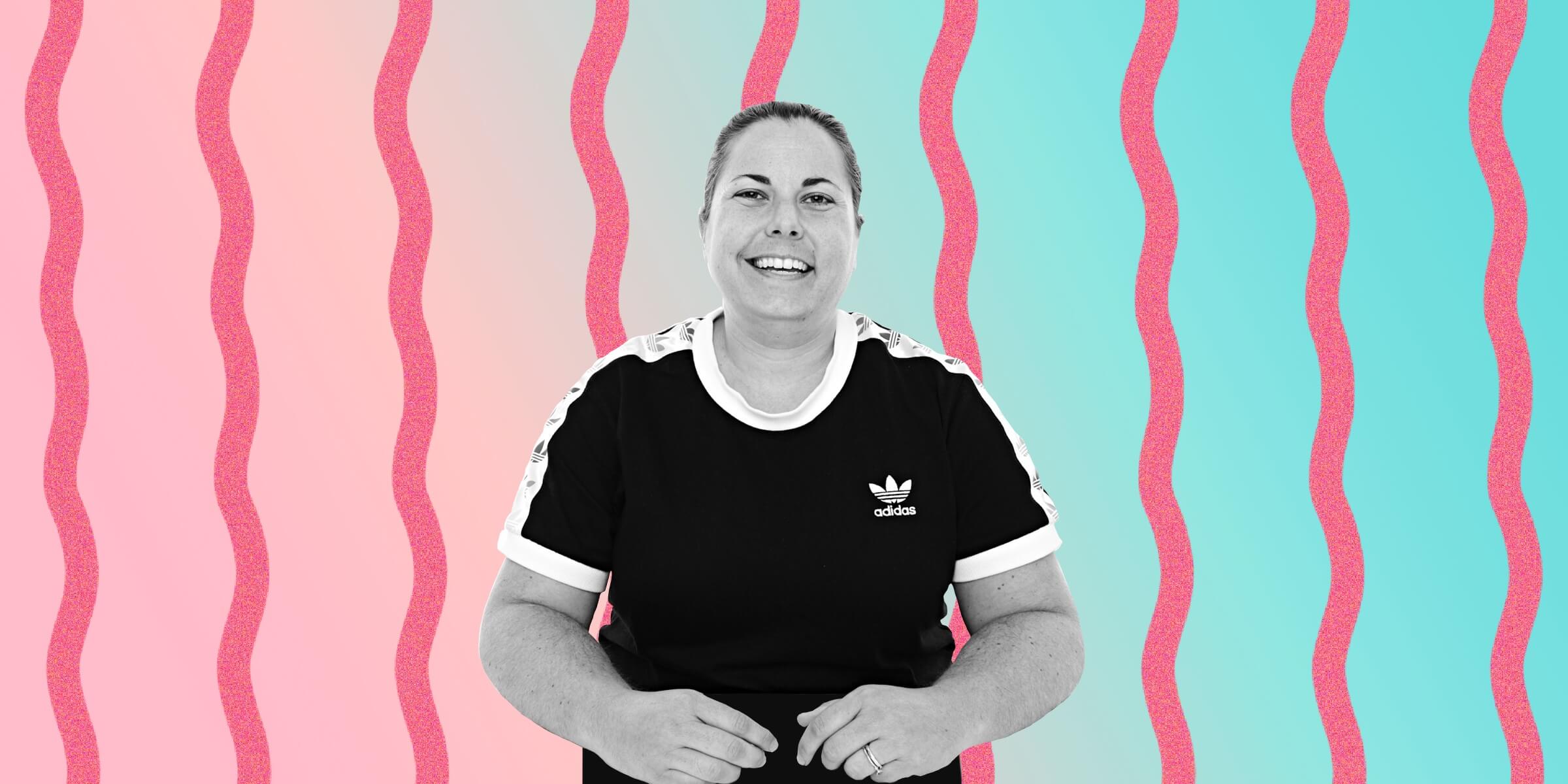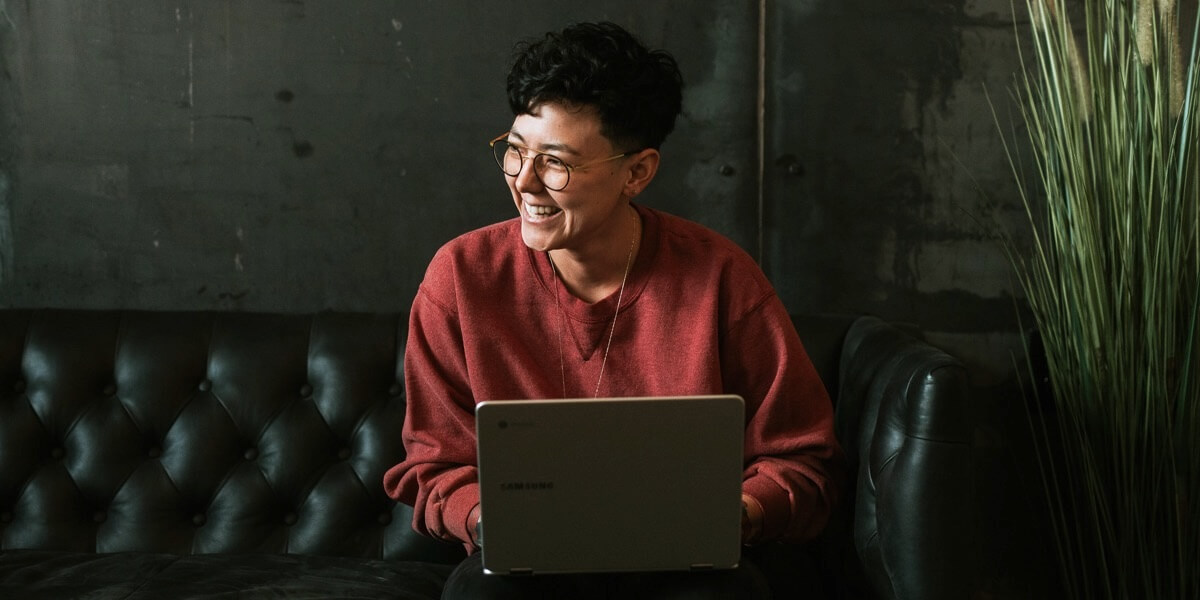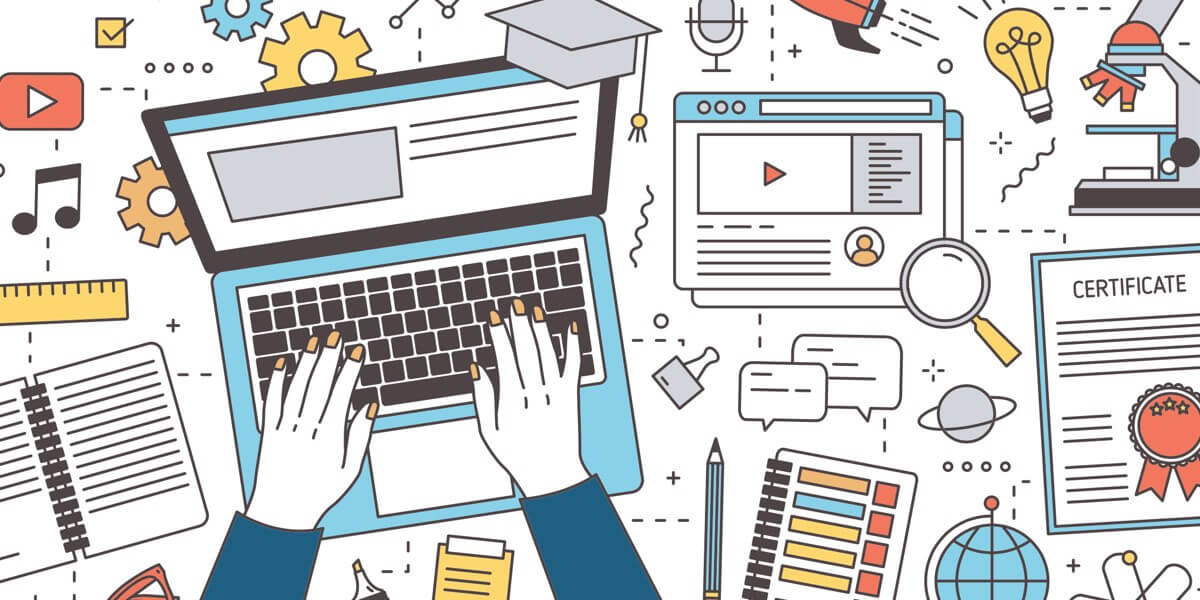The Path profiles people working in what we think of as "dream jobs," living their best professional life, and looks at the people and practices that helped get them there. We talk to these amazing folks about how goal setting, great leadership, tough decisions, and other key moments helped them get to where they are now. And, because so many career paths are inherently winding, we examine what it can look like to handle unexpected experiences along the way.
Founded after a merger between two Dutch and German design and communication companies, Edenspiekermann is a global creative agency with offices in across Europe, the United States, and Asia. Boasting giant global clients like Mercedes-Benz, Google, and Redbull, the agency’s designers, developers, and strategists all around the world innovate on projects and design solutions.
Sacha Simmons is a Project Manager and Creative Producer at Edenspiekermann, where she collaborates with clients, leads teams of designers and helps teams improve processes. Over the course of her career, Sacha has worked with several creative agencies, and also become a yoga teacher and put her professional skills towards yoga and wellness-related projects. Here, Sacha discusses what it’s been like to manage in a fully virtual environment, what it means to spearhead change at work, and how she has navigated difficult conversations during a time of increasing tension.
What did you go to school for and what did you think you wanted to do at that time in your life?
I studied International Policy & Processes at Georgetown University in Washington, D.C. When I didn’t get past the second round of the State Department exams, I didn’t know what kind of job to pursue. In 2008 I was a senior in college and was accidentally invited to a career fair for graduate students. A few management consulting companies invited me to information sessions and interviews, which is how I learned that this field existed.
Can you give me the ‘Spark’s Notes’ version of your education and career history so far?
Once I got in the door, I've consistently focused on building my team leadership and communication skills so when I left D.C. to move back to LA, I was able to transition into creative production and have since worked with quite a few agencies.
These days I am at Edenspiekermann, working as a project manager where I liaise with clients and lead teams of designers to get things done and solve problems. I’m currently on a big client project for an electric car brand, so I’ve been learning that world for the past few months, helping their design teams to improve processes.
How did you end up getting hired for the position you’re currently in?
As many of us may have experienced, it's easier to get a job once you already have one. Last year I was working on-site for a local government client and was introduced to the creative agency Edenspikermann. I was brought into their website project to help go-between the City clients and the agency, and when that project ended, the agency reached out to me.
What are some daily habits you absolutely make sure to schedule into your day?
I practice meditation and yoga daily, sometimes only for a few minutes, but I’ve always got to do a little something. If I’m really busy and can’t make it to the mat, I’ll just do some brain and eye yoga exercises at my desk. Every day I also make a point to go get fresh air, sunshine and to do something “non-productive” like an art project or nap.
What do you love most about your job?
I love being able to earn a good living while working from home. This current position is intellectually stimulating and well-resourced which gives me peace of mind. I’m able to focus on this without having to look for other jobs or new clients, which is usually part of the freelance hustle. I also love a good opportunity to flex my creative muscles, connect with talented people, and solve problems, which are all abundant in this client arrangement.
Tell me about someone who’s made a significant impact on your career trajectory.
I’ve had the opportunity to work with a lot of smart people. My very first manager at Booz Allen Hamilton in D.C. made a huge impact on my career because he opened my eyes to the world of business consulting. Although I was freshly brand new on the job, he helped set me up for projects with a lot of responsibility where I grew exponentially and had fun along the way.
A few years ago I took about one year off from agency work and went in-house at a Black women-owned startup called Sip & Sonder. This was a great experience because I was able to live and work in South Los Angeles and really roll up my sleeves to build something physical. I helped oversee construction, secure operating permits, and set up the equipment and processes for a cafe and flexible creative space. While that project had plenty of challenges it was also a really refreshing change from being in an office doing digital creative production and occasional.
What’s been the biggest learning lesson in your career so far?
To not be afraid of change, because it's truly the only constant we can depend on. To trust myself, my creativity, and my intellectual insights because they are unique to me and there’s no point trying to think or be like anyone else.
What do you think makes a good leader?
Great active listening skills, where we fully hear someone out before planning our reply. A sense of humor, which helps with relatability. My brief stint as a stand-up comedian has really helped with this! Functional processes and systems to remember all the different moving pieces because it can be disconcerting when a leader is too disorganized.
How do you approach difficult conversations with your team and other colleagues?
I am the only Black person working at my current agency and when the Black Lives Matter protests started picking up, and I recently had to address the issue with my bosses and team. It was interesting because they are mostly European. At first, they were considering this an American political issue, so I had to help them understand that European colonialism is the root of everything we’re experiencing now and that the creative industry is complicit. They took it seriously and now we are working on a BLM initiative. They have put a considerable amount of time and effort into creative long-term ideas that help to use the skills within the company to mentor and help kids get into creative careers. So, it’s good to see some change happening.
I believe that — since my approach was genuine and personal — they were very open to discussing it and putting energy into creative solutions.
Work culture looks completely different than it did even a month ago, how are you adjusting? And what practices are helping you stay centered amidst increased uncertainty?
I personally love not having to go into an office anymore. Some days, I end up working a bit more than others, but I am happy to be on projects that are already booked for the next few months. So I’m able to get my work done and focus on my health and wellbeing.
In past years, I struggled with overworking while working from home; I always felt like I was being scrutinized. But now I’m able to see that this as a long-term situation and I need to pace myself. I have a work-free zone in the house, a little yoga nook, so having somewhere to go to recharge has helped. Also, taking fresh air breaks, which does require some discipline especially if I have back-to-back calls. I try to sit outside on calls sometimes, too.
I work directly with ten creative designers and work indirectly with another 20 or so technical product managers who I’ve never met because I joined after quarantine began. I’ve had to communicate my personality, work style, and expectations virtually. But it helps being open about things I'm into besides work — for me, it’s yoga, meditation, and music. I like to let [people] in on that because it helps to humanize each other.
Has your company culture pivoted or changed? If so, how?
When I joined the project, we had daily standup calls on Zoom. At first, no one was turning on their cameras, so I said: “We should do this once a week where we can actually say hi to each other.” We then had the idea to do different themes for Zoom backgrounds every Tuesday, and it’s surprisingly fun and cute! The whole team gets really creative with it, whether it’s memes, pop culture, or your favorite snack when you were a kid. Even though it’s silly, it’s something that’s made a difference. Before when I worked from home, there was always this pressure to prove how hard you're working and how productive you are, which leads to a culture of exhaustion and overwork. Now there’s this realization that we might as well make it work in our lives.
What do you think managers and leaders need to be doing to create better workplaces as we move forward from this moment?
We have been given an opportunity with the shutdown of the pandemic to have all these professional services reconsider what it means to work with a team and collaborate. Working remotely is now a very valid way of showing up, doing your job, being trustworthy, and continuing to grow professionally and connect with a team. I think it’s really cool that we’re being introduced to a new level of flexibility and that it’s also giving us an opportunity to see what else matters in our lives besides work or going to and from work. Managers and leaders can do better by continuing to be more open to a variety of scenarios, and part of that is flexibility. When we’re able to travel again and maybe relocate to other countries, I hope that distance will not feel like an elephant in the room. Having the flexibility to live your life and do some long-term planning while also feeling like you can have longevity at a job is important.
I have had to actively adapt in the way that I manage. I’ve always been the type of manager who really spends time with the people on my team, and tries to cultivate personal relationships outside of specific projects to understand their career goals more broadly. When I first got to my current client, an early project was to organize annual reviews for the whole design team and that helped me get to know a new group quickly. Over the past years, my actual management style has still been really focused on my team, but I have had to make a point to set up one-on-one meetings or even just hang out with people virtually to build a comfortable environment. That way, people feel that you’re looking out for them; and they feel like, if something’s wrong, they can tell you and not feel afraid of retaliation. Doing that virtually has been interesting, but it has gone well so far!
What advice would you give to your younger self?
One thing I would tell her is to know the difference between when precision and attention to detail is required and when action and speed are more appropriate. I have definitely made errors and typos along the way that I could have avoided by slowing down, but I’ve also been successful in moments where I haven’t been held back by hesitation and I’m able to be sharp and quick. So I think steadying that balance is something that’s never too soon to start learning.







.jpg)